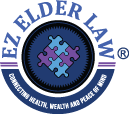
As of this writing, the following pooled trusts are authorized by the Department of Community Health to provide trust services in Georgia: Georgia Community/Trust/Bobby Dodd Institute Anita Gardner Decatur, GA 404.809.2914 Anchor For Special Needs, Inc. Annie Warner Cincinnati, OH 844.526.2467 Advocates and Guardians for the Elderly & Disabled (AGED) Thad A. Joseph Longwood, FL 888-277-1826 The Center […]



